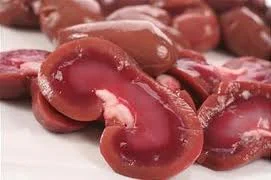This is a detailed review of the methods of treatment and management of Chronic Renal failure .
The management of that serious disease is either Conservative or Invasive depending on the stage .
A-Conservalive (medical ttt )
Indications :
1. Fair general condition (= Minimal symptoms = Stable C.R.F).
2. S. Creatinine < 8 mgldl.
3. Blood urea < 200 mg/dl.
The above 3 indications must be fulfilled together.
What are tthe Lines of medical treatment of chronic renal failure ?
1. DIET
•• Low protein diet, about 40 gm (small piece of meat) i.e. 0.6gm/kg of which 60% contains proteins rich in essential amino acids e.g. eggs,
lean meat and milk.
Low protein diet decreases glomerular hyperfiltration so reduces glomerulosclerosis. Also protein restriction reduces phosphate load.
•• Carbohydrate (source of energy 250 gm/d).
•• Low potassium diet (fruits & citrus fruits) .
•• Sodium :
- If there is salt losing nephropathy e.g tubulointerstitial disease give Na supplements.
- If there is salt retention (in most patients), restrict Na.
•• Fluid chart, (the fluid intake = 500 cc + volume of urine in the previous day). Dilutional hyponatremia may occur if water intake exceeds the capacity to excrete the water load.
2. ttt. of GIT manifestations:
•• Vomiting, give domperidone.•• Hiccough, give domperidone.
•• Gastritis, we can use H2 blockers or proton pump inhibitor.
3. Phosphate chelators:
• Oral Ca carbonate acts as a Calcium supplement & also reduces absorption of Dietary Phosphorus, 500mg tab tds before meals.• Also Ca acetate can be used.
• Al hydroxide must be avoided as a phosphate chelator.
• H2 blockers decrease the effectiveness of phosphate binders.
• Newer non calcium non aluminum containing resins (e.g. Sevelamer) can be used as phosphate binders, 800mg tablet tds before meals.
4. Endocrinal disturbances:
• Ca supplements : Calcium carbonate oral.: Vitamin D (one alpha). It is a synthetic analogue of vit D (alfacalcidiol) tablet 0.25 microG - 1 microG/Day.
• Anabolic steroids improve bone disease & decrease protein catabolism.
• Hyperprolactinemia is treated by bromocriptine (Parlodel).
5. ttt. of Anaemia:
• Iron therapy is helpful especially iron infusion.• Erythropoietin (Eprex, Recormon) is genetically made, the starting dose is 50 u/Kg three time/wk then the dose is adjusted to maintain a
target hemoglobin of 10-12 gm/dl.
• Avoidance of blood transfusion lessens the chance of infection or sensitization to HLA antigens, which becomes a barrier to successful
renal transplantation in the future.
• Failure to respond to adequate dose of erythropoietin may be due to iron deficiency, bleeding, malignancy or infection.
6. ttt. of CVS manifestations:
1. Hypertension:
- B Blockers.
- ACE inhibitors.
- Ca channel blockers.
Pericarditis: It is an indication of dialysis.
Combination of antihypertensive drugs with large dose of diuretics is useful to correct sodium and water retention.
7. Impotence:
It can be treated by Sildenafil (Viagra).8. Acid. base and electrolyte disturbance:
Hyperkalemia- Dietary restriction of potassium intake.
- Cation exchange resins to remove potassium in GIT. e.g polystyrene sulphonate resins (sorbisterit) 15gm oral/8hrs with Laxative e.g Lactulose.
- Glucose insulin infusion.
- If there IS no response --> dialysis.
Acidosis (correction of acidosis helps to correct hyperkalemia).
- Sodium bicarbonate, but it may cause fluid retention.
- Calcium carbonate used as calcium supplement and phosphate binder. Also it has a beneficial effect on acidosis.
- If there no response --> dialysis.
9. Pruritis is improved by controlling Ca/P balance and hyperparathyroidism. Antihistamines, oral charcoal and ultraviolet photo therapy are helpful.
10. Lastly treat any reversible factors
- Stone ---> surgery.
- UTI ---> antibiotics.
D.M ---> control.
- Hypertension ---> control.
- Avoid nephrotoxic drugs.
*** follow up monthly with periodic investigations for creatinine, urea, Na, K, Hb, Ca and P .
B- Dialysis:
Indications
1. Bad general condition.
2. S. Cr. > 8 mgldL and> 6 mgldL in D.M or GFR < 10 ml/min for non diabetics and GFR > 15 ml/min for diabetics.
3. Blood urea> 200 mgldL.
One indication is enough to start dialysis.
C- Renal Transplantation
Slowing Progression of Renal disease ( Reno-protection protocol )
1- Dietary protein restriction ---> glomerulosclerosis.2- Control serum lipids (LDL) to decrease mesangial prolifer sclerosis.
3- ACE inhibitors or angiotensin receptor blockers may exert beneficial effects due to their effects on intrarenal hemodynamics espicially in
patients with diabetic nephropathy.
4- Control blood pressure, add diuretics to prevent hyperkalemia and help to control blood pressure, glycemic control in diabetics.
5. Avoid nephrotoxic drugs.

